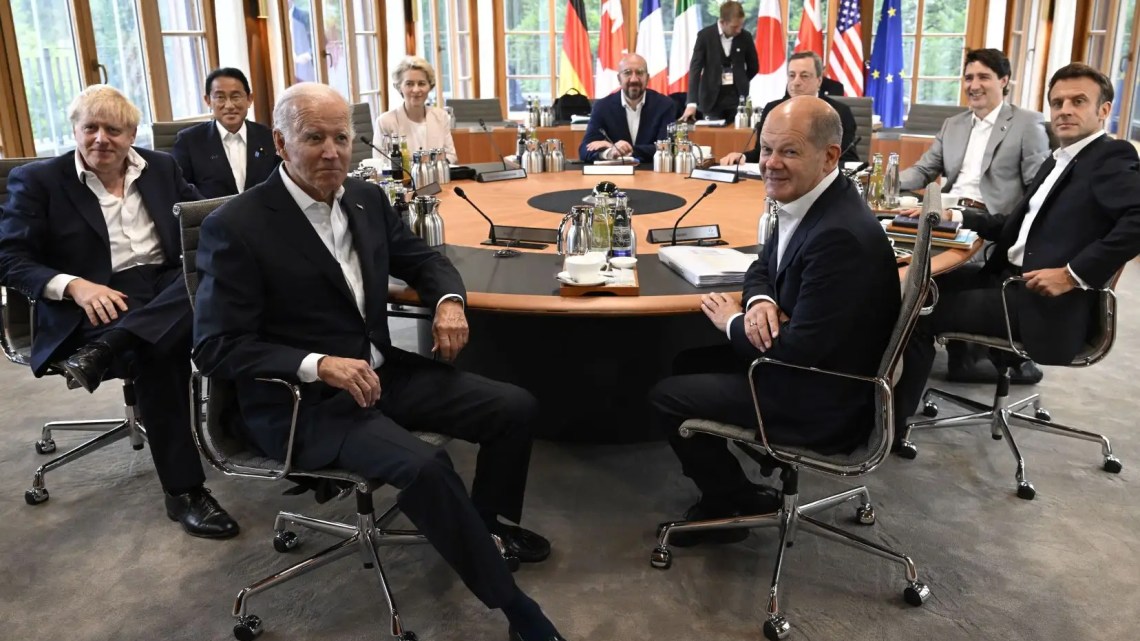
Checkmate for Russia?

The oil price cap decided a few days ago by the G7 is an original, unprecedented measure to be taken very seriously. The member countries of this exclusive club will therefore refuse to buy its oil from Russia at a price that will exceed a certain level which will be fixed later. Surely Russia could take the lead and refuse to sell to nations it deems hostile. However, this hypothesis should be dismissed immediately because oil-related revenues have represented up to 40% of Kremlin revenues in recent years. This country is therefore on a drip. Russia can all the less afford to interrupt her production because the infrastructures would be irreparably damaged by a paralysis which would be fatal to them during the winter. A stoppage – even temporary – of oil production by Russia, whose strategy would be to force a rise in prices (which would benefit her) due to a deficient supply, would also force to incur gigantic expenditure because she we would have to rebuild the pipelines that would be put out of service by the rigors of winter. It is therefore understood: despite the cap on future oil prices, Russia will not be able to afford the luxury of stopping production.
The United States and their European allies had no other choice in adopting this drastic measure because Russia has greatly increased sales to China, India and other countries since the embargo. thanks to which she has been able to maintain the volume of exports at a constant level. The substantial price reductions granted in the order of 20 dollars a barrel to “motivate” buyers did not in any way affect her income because the appreciation in oil prices more than compensated for the shortfall. Under the coming cap, these same Russian oil-importing countries – being far from being philanthropists – will obviously not pay Russia $1 per barrel more than what will be set by the G7, despite of their formal protests against what they consider to be a Western diktat. Moreover, and in all likelihood, these measures will be respected because – unlike the sanctions unilaterally imposed on Iran by the United States in 2012 and applied reluctantly by its allies – this cap on the price of the sale of Russian oil has been adopted in unison and unanimously by all Western nations, which therefore gives it a formidable strike force and potential for efficiency.
The G 7 and followers have the means to control the whole chain: from the payment of the oil bill to the insurance of its transport, to the cargo which contains it as well as to its crew and to the brokers who make the intermediation… Prohibitive sanctions are planned for the entire ecosystem of offenders who have a certain period of time to adapt to them, since these measures will be applied in several stages: stricto sensu capping of the price of Russian oil on December 5, 2022 then refined products as of February 5, 2023. In short, Russia is condemned to reap less and less oil revenue in the relatively short term, in a context where its non-oil revenues have already fallen by 15% and where its GDP will experience a fall of 5 to 8% in 2022, not yet taking into account the capping of oil prices.
Dear readers,
This blog is yours: I maintain it diligently, with both consistency and passion. Thousands of articles and analyses are available to you here, some dating all the way back to 1993!
What were once considered heterodox views on macroeconomics have, over time, become widely accepted and recognized. Regardless, my positions have always been sincere.
As you can imagine — whether you’re discovering this site for the first time or have been reading me for years — the energy and time I dedicate to my research are substantial. This work will remain volunteer-based, and freely accessible to all.
I’ve made this payment platform available, and I encourage you to support my efforts through one-time or recurring donations.
A heartfelt thank you to all those who choose to support my work.